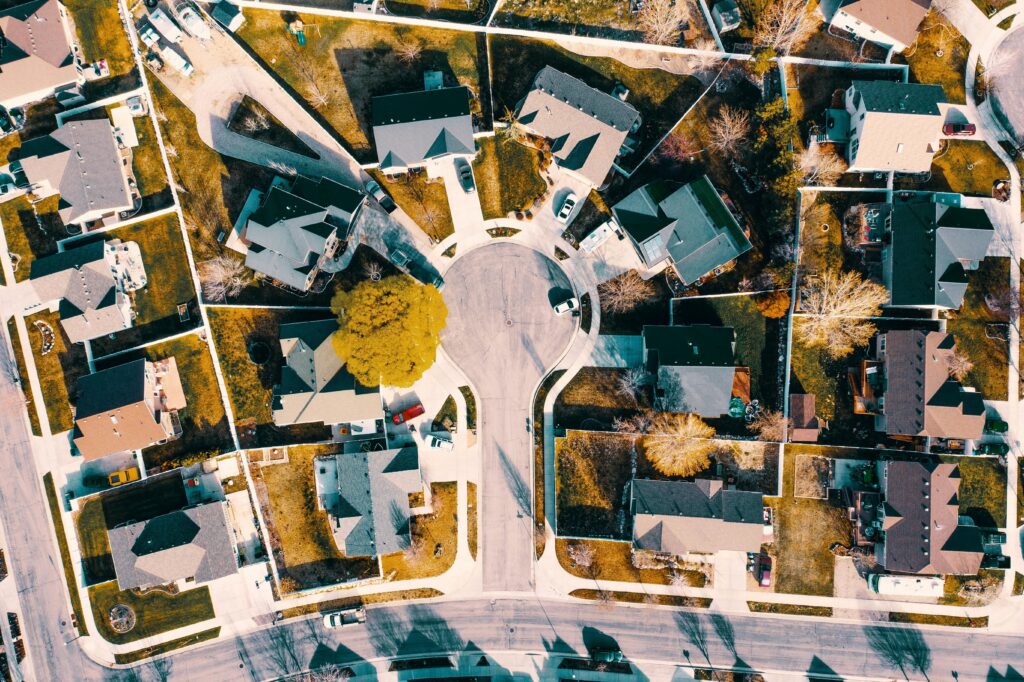As real estate prices continue to rise, homeowners and investors are turning to Accessory Dwelling Units (ADUs) as a way to maximize their property’s value and income potential. But how much does an ADU actually increase a property’s worth?
In this blog, we’ll break down the different types of ADUs, their impact on property value, and key factors that influence their worth. Whether you’re considering building an ADU for extra income, multi-generational living, or resale value, this guide will help you make an informed decision.
What Is an ADU?
An Accessory Dwelling Unit (ADU) is a secondary housing unit built on the same lot as a primary residence. ADUs can be used as rental properties, guest houses, home offices, or living spaces for family members.
ADUs have gained popularity due to their flexibility and potential to generate passive income, making them an attractive option for both homeowners and real estate investors.
Types of ADUs

ADUs come in various forms, each with its own benefits and impact on property value.
1. Converted Garages
Many homeowners convert their garages into livable spaces, adding a fully functional unit with plumbing, electricity, and a separate entrance. These ADUs are cost-effective but may require significant modifications to meet building codes.
2. Detached ADUs
A detached ADU is a completely separate structure, often built in the backyard. This type of ADU typically adds the most value since it functions as an independent rental unit, increasing potential income.
3. Attached ADUs
An attached ADU is an extension of the main home, such as a built-out basement or an addition to the existing structure. These units share a wall with the primary residence but have a separate entrance.
4. Junior ADUs (JADUs)
JADUs are smaller units (usually under 500 sq. ft.) that are built within the existing footprint of a home, such as a converted bedroom or part of a garage. While they add livable space, they typically have a smaller impact on property value compared to detached ADUs.
The Impact of an ADU on Property Value

Adding an ADU can significantly boost a property’s value, but by how much? Let’s break it down:
ADU Value Increase
Studies show that properties with ADUs tend to have higher resale values and attract more buyers, especially in high-demand housing markets. In some cases, an ADU can increase property value by 20% to 35%, depending on size, location, and amenities.
ADU Property Value
The added value of an ADU is influenced by factors such as rental income potential, zoning laws, and buyer demand. A well-designed ADU in a desirable location can create significant equity growth over time.
How Much Value Does an ADU Add?
- A small JADU or garage conversion may increase property value by $50,000 to $100,000.
- A fully functional detached ADU can add $150,000 to $300,000 or more to a home’s value, depending on location and quality.
- If an ADU generates rental income, its value can be calculated using the income approach, where investors determine value based on rental yield and potential ROI.
ADU Resale Value
Homes with ADUs tend to sell faster because they appeal to a wider range of buyers, including multi-generational families, investors, and homebuyers looking for additional income potential.
Factors That Influence the ADU Value Increase

Several key factors determine how much an ADU will increase a property’s value.
1. ADU Size
Larger ADUs typically add more value. A one-bedroom ADU will be worth less than a two-bedroom detached unit, simply because larger spaces appeal to more renters and buyers.
2. ADU Quality
The construction quality of an ADU plays a crucial role in its valuation. High-end finishes, modern appliances, and energy-efficient systems can increase the unit’s desirability and market value.
3. ADU Location
- In cities with a high demand for rentals, ADUs can add significant value due to their income potential.
- Homes in walkable neighborhoods with access to public transportation, schools, and shopping centers also see a higher return on ADUs.
4. ADU Amenities
Buyers and renters are willing to pay more for ADUs with: Private entrances
Private entrances Full kitchens and bathrooms
Full kitchens and bathrooms Dedicated parking spaces
Dedicated parking spaces Outdoor living spaces (patios, decks, gardens)
Outdoor living spaces (patios, decks, gardens)
5. ADU Zoning
Each city has its own zoning laws and regulations for ADUs. Properties in areas with ADU-friendly zoning tend to have higher values since homeowners can legally build and rent out these units.
6. ADU Permits
A permitted ADU holds significantly more value than an unpermitted one. Buyers and lenders prefer ADUs that meet local building codes and have proper documentation, ensuring legal use and safety compliance.
Case Studies: ADU Value in Action
Case Study 1: Los Angeles, CA
A homeowner in Los Angeles converted their garage into a 600 sq. ft. ADU with modern amenities. Initially valued at $750,000, the home later sold for $920,000, increasing by $170,000 due to the ADU addition.
Case Study 2: Portland, OR
A two-bedroom detached ADU was built on a property valued at $400,000. The owner later sold the home for $550,000, gaining an additional $150,000 in resale value due to the ADU’s rental income potential.
Case Study 3: Austin, TX
An investor purchased a single-family home with an unpermitted ADU for $350,000. After legalizing the unit and upgrading it, the property value rose to $480,000, netting a $130,000 increase in equity.
Final Thoughts
Adding an ADU is one of the best ways to increase property value, generate passive income, and attract more buyers when it’s time to sell. Whether you opt for a converted garage, a detached unit, or a JADU, the potential for long-term financial growth is significant.
If you’re considering building an ADU, make sure to evaluate local zoning laws, market demand, and construction quality to maximize your return on investment.
Want to explore more real estate investment strategies? Stay informed with our latest expert insights!


